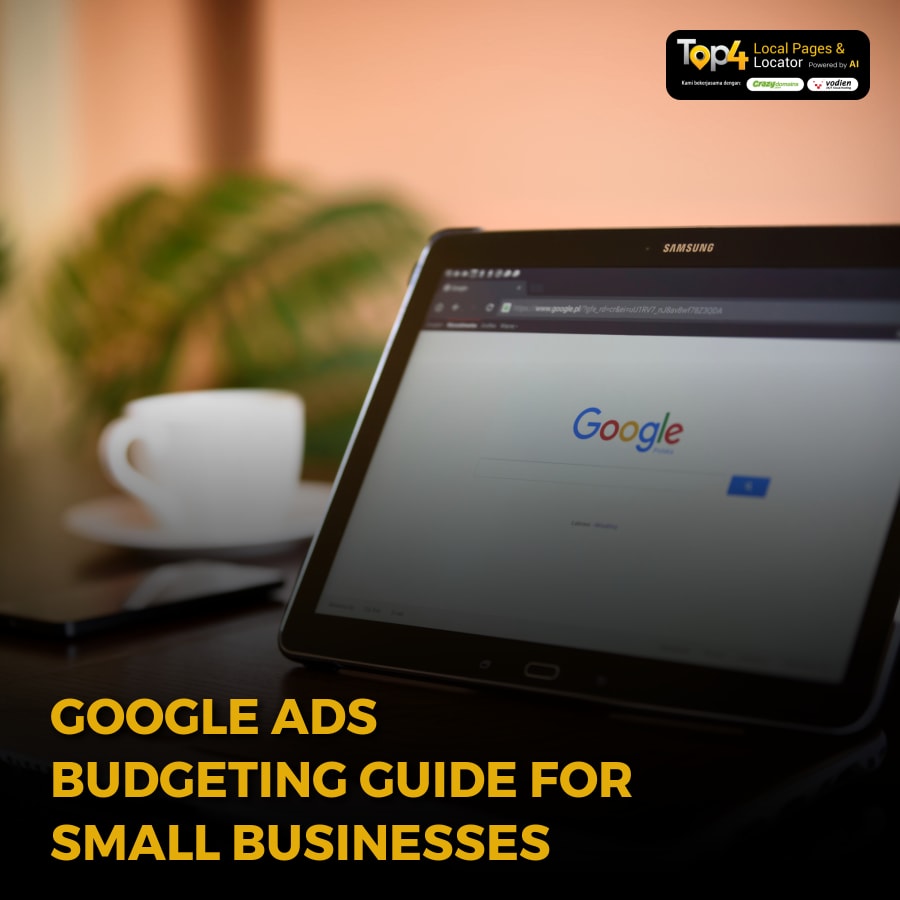Are you struggling to figure out how much to spend on Google Ads for your local business? You’re not alone. Many business owners find themselves overwhelmed by the complexities of digital advertising. With millions of businesses vying for attention online, it can be challenging to determine the right budget for your Google Ads campaigns. A well-planned budget can make the difference between a successful campaign that drives traffic and sales and one that fizzles out without delivering results. In this article, we’ll break down the key factors to consider when setting your Google Ads budget, from understanding Google Ads costs to evaluating your business needs and goals. You’ll learn how to establish a budget that aligns with your objectives while ensuring you get the most out of your advertising spend. Let’s explore how you can optimise your Google Ads strategy and achieve the online success you desire.
Understanding Google Ads Costs
Before deciding how much to spend on Google Ads, it's essential to understand how Google determines the costs associated with its advertising platform. The amount you pay for Google Ads varies based on several factors, including your industry, target audience, and the competition for keywords. Generally, Google uses a bidding system where advertisers set a maximum cost per click (CPC) they are willing to pay for their ads. The actual CPC you pay may be lower than your maximum bid, depending on factors like ad quality and relevance.
For small businesses, average CPCs can range from a few pence to several pounds. For instance, highly competitive industries like law or insurance can have CPCs upwards of $5, while niche markets might only see costs of $1 or less. Therefore, understanding your industry’s average CPC can help you gauge how much you might need to allocate for your Google Ads campaigns.
Establishing Your Budget
When it comes to determining a good budget for Google Ads, start by considering your overall marketing budget. A common rule of thumb is to allocate around 10-20% of your total revenue towards marketing efforts. From there, you can decide how much of that should go specifically to Google Ads.
To create an effective Google Ads budget, you should also factor in your business goals. Are you looking to increase brand awareness, generate leads, or drive sales? Each objective may require a different approach and budget. For example, if your goal is to drive sales, you might allocate a higher percentage of your budget to Google Ads, especially during peak seasons or promotional periods.
Calculating Your Cost Per Acquisition (CPA)
Understanding your Cost Per Acquisition (CPA) is vital when setting your Google Ads budget. CPA measures how much you spend to acquire a customer. To calculate your CPA, divide the total cost of your Google Ads by the number of conversions (sales or leads) you achieved from those ads. This metric helps you evaluate the efficiency of your advertising spend.
For instance, if you spend $1,000 on Google Ads and gain 50 new customers, your CPA would be $20. Knowing your CPA can assist you in adjusting your budget effectively. If your CPA is higher than what you’re willing to pay per customer, you may need to refine your ad targeting or optimise your ad copy to improve conversion rates.
Evaluating Competition and Industry Trends
Your competition plays a significant role in determining your Google Ads budget. It’s essential to conduct competitor analysis to understand how much they are spending on similar keywords and campaigns. Tools like Google Keyword Planner can provide insights into keyword competitiveness and estimated CPCs, giving you a clearer picture of what to expect in your industry.
Moreover, staying updated on industry trends can inform your budgeting decisions. For example, if your competitors are ramping up their advertising efforts, you may need to adjust your budget to remain competitive. Additionally, consider seasonal trends that may affect consumer behaviour. Budgeting for increased spending during high-demand periods can help you capitalise on these opportunities.
Testing and Optimising Your Budget
Once you’ve established an initial budget for your Google Ads campaigns, the next step is to test and optimise your approach. Start with a smaller budget to test different ads, keywords, and targeting options. Monitor the performance of your campaigns closely to identify which strategies yield the best results.
Google Ads provides various metrics to analyse your campaigns, including click-through rates (CTR), conversion rates, and quality scores. Use these metrics to assess the effectiveness of your ads and make informed decisions about budget adjustments. If certain ads perform exceptionally well, consider reallocating more of your budget towards those campaigns to maximise your return on investment.
Setting a Daily or Monthly Limit
Google Ads allows you to set daily or monthly budgets, giving you control over your advertising spend. Establishing a daily budget can be particularly beneficial for small businesses with limited funds. A daily budget ensures you don’t overspend in a single day, allowing for consistent ad visibility throughout the month.
For instance, if you set a daily budget of $50, your total monthly spend will be approximately $1,500. This approach provides predictability in your expenses and helps you manage cash flow effectively. Additionally, regularly reviewing and adjusting your budgets based on campaign performance can help you stay aligned with your business goals.
Conclusion
In conclusion, determining how much to spend on Google Ads requires careful consideration of various factors, including industry competition, business goals, and customer acquisition costs. By understanding Google Ads costs and evaluating your unique business needs, you can establish a budget that maximises your advertising efforts. Regular testing and optimisation will further enhance your campaigns, ensuring you achieve the best possible return on investment.
At Top4 Marketing, our expertise can help you craft a local marketing plan that aligns with your business goals and local community needs. Let us assist you in maximising your online strategy. Visit Top4 Marketing blog for more insights to elevate your business to new heights. Contact us today and start your journey towards local marketing success.


























